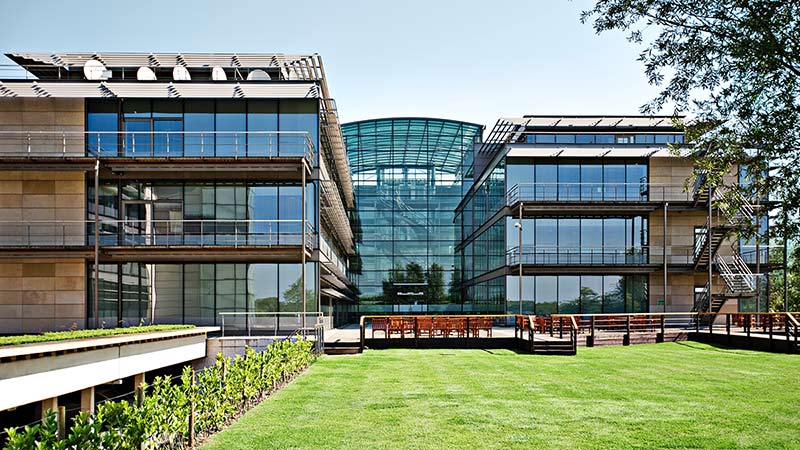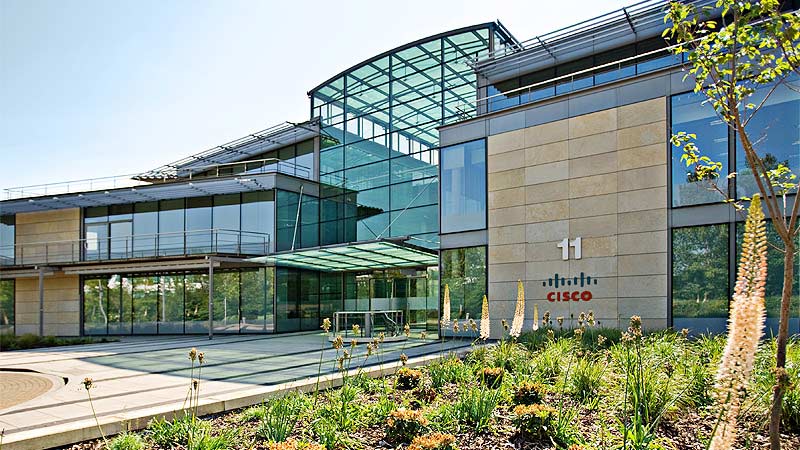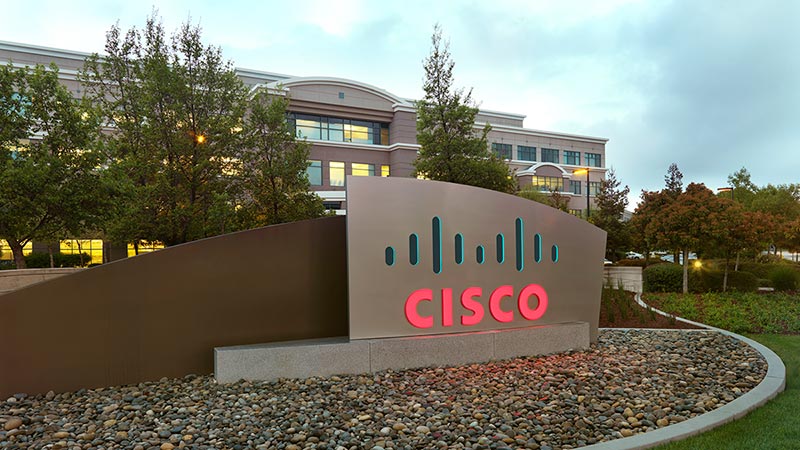BANGALORE, India - October 31, 2007 - Cisco® today unveiled its state-of-the-art Globalisation Centre East campus in Bangalore at an opening ceremony presided over by former Indian President Dr. A. P. J. Abdul Kalam and John Chambers, Cisco chairman and CEO.
Cisco also announced that it is extending venture investment initiative in India by another $100 million to drive growth with high-potential Indian companies This venture investment in India is consistent with Cisco's long track record of driving growth in the information technology (IT) market through investment in the innovation economy. In 2005, Cisco designated an initial $100 million in venture funding for this purpose as part of its overall $1.1bn investment plan for India.
As the first of several potential iniatives Cisco is pursuing within the new $100m investment goal, Cisco is collaborating with Satyam Computer Services to explore a new venture investment. This planned new venture will focus on optimising, deploying and managing integrated healthcare management solutions globally, bringing together the market reach, capabilities and experience of both Cisco and Satyam. Please see separate release for more information.
Cisco today employs over 3000 people across India, and the first phase of the Cisco Globalisation Centre East campus will initially be able to accommodate 1200 personnel. Spread over 1 million square feet on the Outer Ring Road in Sarjapur, Bangalore, the first phase will accommodate staff from Cisco's Globalisation Centre, research and development (R&D), IT, and customer support teams in India. In October 2005, Cisco committed US$50 million to build this new integrated campus.
The new facility will house an advanced Global Briefing Centre to showcase Cisco's latest technology solutions and provide an environment for closer collaboration with partners in spotlighting solutions for customers in emerging markets such as India, China, the Middle East, Africa, Asia and Latin America. The campus also houses the largest campus datacentre outside the US and will provide a focal point for demonstrating next-generation virtualisation technologies and service oriented network architectures that support customers' global environments.
"India is at the heart of our globalisation vision and provides a platform for Cisco to capitalise on the growth potential and lead market transitions in the emerging world. The commitment we are making to truly globalise our business is reflective of the changing business models of our customers and partners. We will develop products and services here that will fully support the goal of services-led solutions-oriented models for customers in this part of the world," said Wim Elfrink, chief globalisation officer for Cisco. "The new Globalisation Centre East will offer a collaborative work environment to help us attract and retain top talent, and take full advantage of collaborative technologies such as Cisco TelePresence to help us scale to support our continued growth across multiple emerging economies."
The Bangalore opening ceremony showcased potential future applications of Cisco TelePresence technology, which allows groups in different locations to meet around a virtual table. By demonstrating new applications beyond the virtual meeting, Cisco is illustrating how Cisco TelePresence can be used for a wide range of collaboration applications, effectively eliminating distance as a barrier for organizational communications.
At the event, Cisco TelePresence was used to project full life-size images of Cisco executives in California onto the stage in Bangalore, as if they were there in person. The demonstration of an on-stage Cisco TelePresence experience integrated a next-generation display technology with Cisco TelePresence technology.
The Bangalore opening ceremony also represents the first time Cisco TelePresence and the Cisco Digital Media System were used to publicly broadcast live content to desktop users via the Cisco Video Portal and participants on campus viewing Cisco Digital Signage. As part of the event, Cisco also demonstrated Cisco TelePresence interoperability with existing video conferencing equipment.
Cisco's new facility demonstrates Cisco's commitment to green initiatives with sustainable design and construction into the built environment. The initiatives implemented include transportation programmes, sun-light and rainwater harvesting, waste recycling, the use of Telepresence, and will actively reduce Cisco's carbon footprint as well as reduce ongoing costs over the building lifecycle. The campus will take advantage of next-generation workspace design best practices and harnesses Cisco Connected Real Estate solutions to integrate building management systems with traditionally disparate control networks for power, water and communications into a single converged IP infrastructure.
The new facility aims to support attracting and retaining talent, with amenities such as sports facilities including fitness center, cricket practice pitch, multi-cuisine cafeteria, an open amphitheatre, library and a coordinated landscape to help the employee population work, live, play and learn. The second phase of the campus is expected to be completed by October 2009 and will house an additional 2000 staff.
As a hub to support Cisco's growth in emerging markets, the new centre will house multiple TelePresence facilities to help scale teams to support customer engagements globally. In phase one, the campus is capable of supporting 12 simultaneous TelePresence sessions, with a total of 20 TelePresence units planned to be installed across the first 4 buildings.
Cisco first established operations in India in 1995 and today employs more than 3000 people in the country across its Globalisation Office and R&D Centre in Bangalore, and sales offices in New Delhi, Mumbai, Bangalore, Chennai, Kolkata, Pune, Hyderabad and Colombo, Sri Lanka.






